Jimmie Dale Gilmore: From Buddy Holly To The Flatlanders (Interview)
Texas-based singer-songwriter Jimmie Dale Gilmore is just one of many excellent artists to emerge from the Austin music scene. Gilmore got his start in the early 1970’s when he teamed up with his buddies Joe Ely and Butch Hancock to form the now-legendary Flatlanders. They barely released one album in 1972 (it only came out on 8-track tape) but it cemented Gilmore’s reputation as a premiere songwriter thanks to his tune Dallas. All three men went on to have acclaimed solo careers with Gilmore finally releasing his first album in the late 1980s. With the re-issue of The Flatlanders’ album in 1990, Jimmie Dale’s legacy was enhanced even more and his album, After Awhile, released a year later is considered his finest. Since then, The Flatlanders have reunited from time to time and Jimmie Dale Gilmore has continued to record and perform as a solo artist. His latest, 2011’s Heirloom Music, features a collection of old-time country and bluegrass tunes. Jimmie Dale Gilmore will perform a special, one-off show at Auckland’s Tuning Fork on Monday, April 20 with his son Colin. The 13th Floor’s Marty Duda spoke to Jimmie Dale Gilmore recently to ask him what we can expect for this concert.
You can listen to the interview with Jimmie Dale Gilmore here:
Or, read a transcription of the interview here:
MD: First off, I don’t know, have you been to, have you played in New Zealand before or is this your first time down this part of the world?
JG: I’ve been there one time before, it was a long time ago, it was in the late 80s. Actually I need to go back and look up and find out exactly when it was, but Butch Hancock and I, we did a month long tour of Australia and then we spent a week in New Zealand and loved it.
MD: What did you get up to? Anything good?
JG: We played in, I believe in Auckland, in Wellington and in Christchurch.
MD: Right.
JG: We did the whole length of both islands and saw a lot of beautiful scenery.
MD: Yeah, it’s a good looking country.
JG: It sure is and my wife is going to be with me on this one and she’s wanted to do that ever since… we weren’t together back then
MD: And are you playing Australian dates as well on this trip down here?
JG: No, only New Zealand.
MD: Really? Oh, so what brought that on?
JG: Well I’m actually, I’m playing a private party that made it possible.
MD: Cool. Alright.
JG: And then The Tuning Fork I guess found out that I was going to be there and they contacted my booking agent and my son and I are going to be together. We play a lot of duets stuff these days.
MD: Right.
JG: So it’s kind of a perfect opportunity.
MD: Excellent. Now I know it’s been like 4 years since you last put out an album and even longer since you’ve put out an album where you’ve written songs on it. So I guess there’s somewhat of a wondering what you’re going to be up to when you get here, what kind of show are you going to be putting on, what kind of songs are you going to be presenting, so if you can fill me in?
JG: Well I probably, when I’m doing it with my son, he really pushes me to do my own stuff, he likes my repertoire and I always lean towards my old favourites of other people. I’ll be doing some of those, I may get up the nerve to do some newer stuff, but I’ve always been the small one of our group to write.
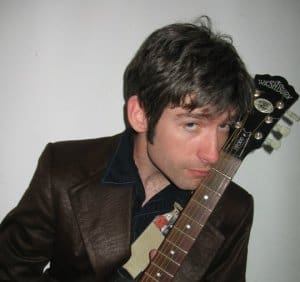
MD: Right. So there are new songs, you have been writing all along, is that right?
JG: Yeah, except I’ve got a stack of half-finished songs . Maybe someday I’ll get them all out before its too late.
MD: I certainly hope so. Yeah, I mean, you are, you’re about to turn 70 in about a month or so and you’ve been making music for quite a long time since the early 70s. Does the whole aging thing affect your music and how you think about it and how you approach it?
JG: But I was saying I still love music as much as I did when I was younger but as you get older, you change. The amount of music that I’ve done, the amount of experience I’ve had and everything. I listen to music differently than when I was young. I focus on different things and it’s, I’ve lately been hearing some of my old recordings and I really like them a lot. It’s almost as if somebody else did it.
MD: Right.
JG: That’s an interesting process for me to notice. Music is a wonderful, amazing mystery that I never have figured out…why everybody, especially me, loves it so much.
MD: Right, I kind of understand where you’re coming from. What surprises you about those early recordings? Is It the song writing or the performance or what is it?
JG: Well some of that. It’s more like I can tell that I just was thinking differently. It’s sort of like seeing an old photographing yourself and you compare it to the way you look in the mirror now.
MD: Yeah.
JG: It’s like ‘wow that looks a little bit like the same guy’.
MD: Yes. So since you’re travelling around with your son and I know your son has been doing quite a lot of music, releasing his own albums and doing this own thing, is there much of this kind of insight that you impart on him? How does the communication go between the two of you?
JG: Well it’s very interesting. He has very clearly been influenced by my music and the people around us Joe Ely and Butch Hancock.
MD: Right.
JG: Were just part of his life since the beginning and he’s kind of like the way we all were which is very individualistic. You can tell the influences are there but he very much has his own taste, he definitely doesn’t copy anybody.
MD: Right. I know you’ve done some teaching of song writing. Does that go through to him as well and how does one teach song writing anyway?
JG: I only do it once a year, well this year I’m doing it twice but it’s just a week long session. I’ve done it now for 20 years at the Omega Institute, it’s called the Omega Institute for Holistic Studies in Upstate New York.
MD: Right.
JG: And also this year I’m co-presenting one with an old friend of mine at the Tassajara Zen Center out on the West Coast. So, but the method that I evolved is actually, and it’s very clear to me that I don’t really teach it, what happens is that I just, I sort of orchestrate the class in such a way that the class, everybody teaches each other.
MD: Right.
JG: Including me. I’ve become really like one of the participants.
MD: Yeah.
JG: And then I just, I’m sort of like the traffic cop. I do spend time…in fact the effect of the class hass caused me to analyse and then kind of articulate things that were always just instinctive before or intuitive, things that I didn’t really think through. And I really loved the class for that reason because of it, forcing me to take a different look at the whole process.
MD: Right, and speaking of the process, I was wondering if you followed along in the news the whole business of the Robin Thicke, Pharrell song Blurred Lines being accused of plagiarism against the Marvin Gaye tune Got To Give It Up. As a song writer, did you…
JG: That’s interesting. I just heard something about that today but I have not heard any of the details, I just heard it mentioned on the public radio station that I listen to a lot here.
MD: Right. Well apparently, I mean just because the vibe of the song was so similar to the Marvin Gaye tune that they were awarded, the Marvin Gaye estate, was awarded about 7 million dollars which is kind of precedent- setting because up until now it’s always been you had to copy a particular melody or chord progression or something and now it’s just kind of the atmosphere of the tune was the same which is more about the production than anything else I guess, but…
JG: That’s interesting because in a certain sense that really seems right to me but on the other hand it gets into an area that is so subjective. It seems like that it’s really hard to decide.
MD: Right.
JG: How do you determine? But I think, I really believe in people paying for what they use.
MD: Right.
JG: If you take an idea or even just a record from somebody, just a song and use it, I think that the writers and performers have been getting the short end of the deal for the whole, ever since the recording industry started and even before that.
MD: Yes I’d agree with you there. Yeah I guess, and they’re still last ones in that kind of trickle down… that’s the way that the music I guess, anyway.
JG: Yeah which is so ironic because it’s all based on the music.
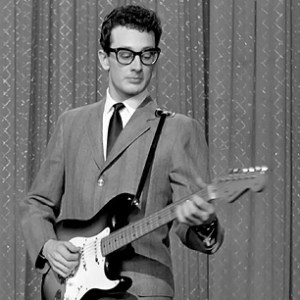
MD: Right, yeah. Now I know you grew up in West Texas, in Lubbock I believe, which of course has a fairly rich history with Buddy Holly and Roy Orbison and all those guys. How much of the place where you come from affects the music that you end up performing?
JG: Well we’ve talked about this a lot. We get asked this question a lot because it seems like so much music has come out of Lubbock.
MD: Yeah.
JG: I think there is very much an effect that your surroundings have on you, that the environment has but I think it’s unconscious. At least I never have deliberately tried to evoke a certain thing, but I think it happens sort of organically.
MD: Right.
JG: But it’s hard to put your finger on it. Lubbock is, the main feature of Lubbock is the sky.
MD: Right.
JG: And the wind and occasionally the most beautiful thunder storms you can ever imagine.
MD: Well that sounds fairly inspirational.
JG: There were periods too that when the dust storms were the main feature, every few years it gets like that.
MD: Right, right. When you were growing up did you get a chance to witness Buddy Holly and Roy Orbison and all those guys play?
JG: Well I saw Buddy Holly, I was younger than him.
MD: Right.
JG: And I saw him in the distance at a parking lot, yeah I remember they were having a kind of a dance out on the asphalt.
MD: Right.
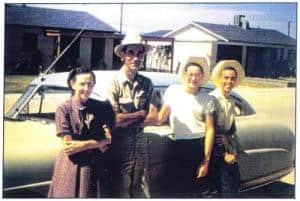
JG: But later on, this is an interesting thing, so it’s part of my story that a lot of people don’t know about that Buddy Holly’s father, of course this is years after he was gone, his father was the one that paid for my first recordings…
MD: I’m sorry can you say that again?
JG: Yes, Buddy Holly’s father paid for my first recordings.
MD: Oh really?
JG; Yeah and also that was the first time that I played with a band, I organised a band in order to do those recordings. I’d been doing just folk music before that.
MD: Right.
JG: And Joe Ely was one of the people that I got to play with me, he actually played bass in that little band. So Buddy Holly had both the indirect and in a sort of a direct impact on my musical life.
MD: That’s pretty incredible actually, it’s kind of the…
JG: But I was too young to ever, I was a fan of his not a compatriot.
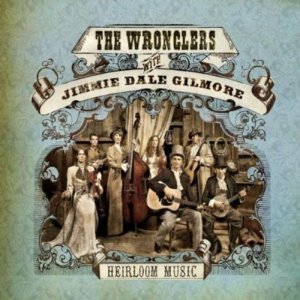 MD: Yeah and I assume…I know your most recent album is kind of a tribute to a lot of that old music from the 40s and 50s that your father listened to and taught you…when you talk to your son about music were there particular song writers or performers that you suggested to him that he should definitely check out before he kind of finds his own musical way?
MD: Yeah and I assume…I know your most recent album is kind of a tribute to a lot of that old music from the 40s and 50s that your father listened to and taught you…when you talk to your son about music were there particular song writers or performers that you suggested to him that he should definitely check out before he kind of finds his own musical way?
JG: Well I don’t think I sort of particularly suggested it, I think he just was exposed to it.
MD: Right. Well when you got Joe Ely and Butch Hancock hanging around all the time I guess you don’t really need to.
JG: Yeah and the records that we played…, because that’s part of a story with Joe and Butch and I that each of us had a different background.
MD: Yeah.
JG: And we brought that to each other. So we all learned each other’s music and that caused us to have a really broad range.
MD: Yeah.
JG: So Colin was exposed to all of that.
MD: And how often do the 3 of you get together these days, you and Joe and Butch?
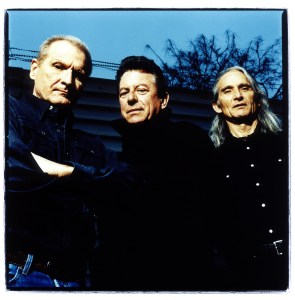
JG: Well we’re still…Butch and I play quite a bit together and The Flatlanders, we only go out if theres a new, if we had a new release or a real specific project and we play a couple of pretty big gigs here in Austin.
MD: Right.
JG: Once or twice a year and we’re best friends. So we hang out socially with each other all the time. but as far as performing together it’s getting to be kind of rare.
MD: It’s very frustrating for us fans, you realise.
JG: I know. It is for us too. It’s hard because of the fact that, we’ve always, we’ve all made a living doing what we’re doing but we never really had any hit songs or anything. So we never got into that thing where you have lots of leisure to write.
MD: Right.
JG: And we like writing together. We discovered that late, belatedly in our careers, and we really enjoy it, but to do that we have to take time off for work and it particularly, that effects Joe especially.
MD: Right.
JG: Because he tours so much and it takes a chunk out of his income and energy to do that. So that’s what makes it so rare for us to create something new.
MD: Gotcha, yeah. I guess that’s a thing that a lot of performers are concerned about because the way the music industry has changed so much that most of the income is coming from playing live all the time and there isn’t that down time where you have a chance to kind of sit down, take stock of yourself and make something new cause there’s no income coming in at that point…
JG: That’s right.
MD: People aren’t making any money from selling albums anymore.
JG: Very few people. Really and truly it’s, percentage-wise it’s always been that way. There have only been a relatively few people that ever got the luxury of just, that they could just take time off to create.
MD: Right.
JG: And it’s always been hard but even really popular musicians, if they’re not in that real upper tiers.
MD: And how is Austin changed over the years? The music business is changed and Austin has been kind of a magnet for a lot of people. I know a lot of New Zealand bands come to South by South West every year in hopes that they’re going to suddenly strike it rich and become the next big thing. But you’ve been in Austin quite a long time now, do you see a change in the way that the city or the town works anymore?
JG: Oh yes, it’s very different. For one thing it’s just… the city itself has changed because, I think they say it’s the fastest growing city in America right now. When I first moved here it was about a quarter of a million people and now the metropolitan area is well over a million.
MD: Right.
JG: So there’s many changes and including the music thing, When I was young, Austin was already a music town.
MD: Right.
JG: But that wasn’t its reputation, but it really was a lot of music and a real appreciative audience for it and real eclectic. When it kind of got out and it became a part of the way Austin promoted itself, the Chamber Of Commerce…
MD: Yeah.
JG: It changed the character of itself. It’s difficult now because it’s expensive to live in Austin.
MD: Oh yeah.
JG: So you can’t really do the things…musicians can’t exactly do the things that we did cause we could sleep out on the porch and the rent was so cheap, a bunch of guys could get a house together and get by on what they made playing music.
MD: Right, right.
JG: But you can’t really do that anymore, it’s way too expensive.
MD: Gotcha.
JG: I think that’s happening everywhere though to some degree.
See Jimmie Dale Gilmore and Colin Gilmore at The Tuning Fork on Monday, April 20th. Click here for more details.